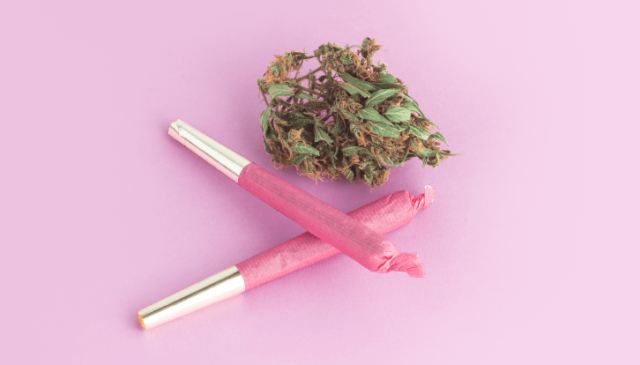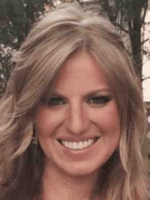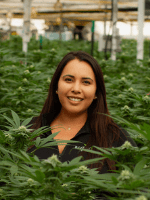
In honor of Women’s History Month and International Women’s Day on March 8, 2021, three successful women in the cannabis space share their journey, challenges and advice for working in the industry.
A woman who has impacted the industry is Lilach Mazor Power, founder and managing director at Giving Tree Dispensary, the only dispensary in Arizona with majority female ownership.

© Courtesy of Giving Tree
Power entered the cannabis industry in 2013 when there were little to no experts in the space. She had to make several sacrifices and worked for free for years, as she knew the company had to continue growing, she said.
But one of the most important things is that she was not afraid to jump in, take risks and work hard to get to where she aspired to be. Someone who can relate to that is Michelle Hackett, president of Riverview Farms in California.
In 2016, Hackett entered the industry when her father, Mike, was one of the first farmers permitted a license to grow medical cannabis in California. Her father wanted to take the business further than cultivation and turn it into a full seed-to-sale business. So, she left her job and jumped on board to help her father build the company, she said.
“At the start of legalization and coming into this space, there was little to no structure,” Hackett said. “We really built the business from the ground up through trial and error.”
When the business started to take off, she invited her sister, Lauren, to join the team to assist her and the already established team, making the company a female-owned and operated cannabis business that now employs over a 75% female workforce.
Another woman who entered the cannabis industry in 2016 is Scottie Gordon, the vice president of licensing and regulatory affairs at Cureleaf.
Before getting into the industry, Gordon was an attorney with a strong interest in regulatory law. When medical cannabis was legalized, it was a natural segue for her into the industry, as the cannabis space is full of regulations, she said.
All three of these women come from dissimilar backgrounds and have different stories to share. Still, they all have in common that they are dedicated and are not afraid to take risks, and those traits helped them overcome challenges throughout their journeys.
INDUSTRY CHALLENGES
In any industry, women encounter challenges, and one that stands out for these women is the prospect of raising capital and funding.

© Courtesy of Cureleaf
“One of the things I recall very vividly is it was difficult trying to raise money,” Gordon said. “Traditional methods weren’t available, like getting a loan from the bank, because the industry was still federally illegal.”
Due to it being difficult to raise money through non-traditional methods, many people had to look beyond family or friends and seek individuals who could invest in a newly merging space, causing a disadvantage for women, as they tend not to be taken as seriously.
“It’s the way people take us and don’t understand that we are here because we are professionals, instead of because we are some girls,” Power said. “And that has been an issue with just trying to find partners or trying to get into the industry in general because there’s not many women in it.”
ADVICE FOR ENTERING THE INDUSTRY AND MAKING AN IMPACT
Being rejected can lead one to self-doubt but surrounding oneself with a robust support system and being aware of their abilities can help one overcome doubt and increase confidence, Hackett said.
At the beginning of Hackett’s cannabis career, it was difficult for her to connect with clients or potential business partners, but through extensive outreach and being vocal, she quickly connected with professionals in the industry.

© Courtesy of Riverview Farms
“I wasn’t afraid to jump in and get my hands dirty,” Hackett said. “I just tried to be fearless and meet as many people as quickly as possible.”
Power also said that it is essential for one to just “go for it,” and try not to let people get in their head.
“I think what women are sometimes lacking is trying to make it perfect before they go for it, and then saying, ‘done is better than perfect,’ has to be said here,” Power said. “Find a niche that you’re interested in because there’s so many things you can do in this industry, then jump in because not everything is going to work out, and it’s OK to fail. But obviously, make sure you are serious and prepared.”
She also said that she believes many women are waiting for others to get into the industry before entering but reaching out to women already in the industry and asking for advice and insights can be beneficial, and Gordon agrees.
“What I always recommend to people is ask questions, read and listen to answers,” Gordon said. “And I think doing that can really help you practice your story and figure out where in the industry you want to be, and ultimately, the more people you talk to, the more developed your ideas and thoughts are, which can increase confidence.”
And it is essential to note that this all does not happen overnight, Power said.
“I still have to remind myself to silence the negative noise, stay focused and remind myself I can do it,” Power said. “It doesn’t end. It’s constant work.”
THE IMPORTANCE OF DIVERSITY IN THE WORKPLACE
Having diversity and different opinions and perspectives is vital in everything we do, especially in the workplace.
“For example, female cannabis users are different from men—the way we shop, or the way cannabis affects our body is different—and it’s important to realize that and notice that,” Power said.
“And it’s not just about having females but having people that are going to advocate for your businesses,” Hackett said. “People that are going to say, ‘Hey, this is not right,’ or express what the business needs to do better or differently.”
Overall, these women would like to see and encourage other women to break barriers and join the cannabis space.
And for someone like Power, who is recognized for owning the only dispensary in Arizona with majority female ownership, she has mixed feelings about it.
“People congratulate me and think, ‘Wow, that’s amazing,’ but is it amazing?” Power said. “This is not great. There are 130 licenses in Arizona, and I am the only one with majority female ownership; that is not where we should be. But on the other hand, I am glad people see it as something to celebrate and something to pass on and talk about so more women can realize it is possible, and we need to fix this.”
